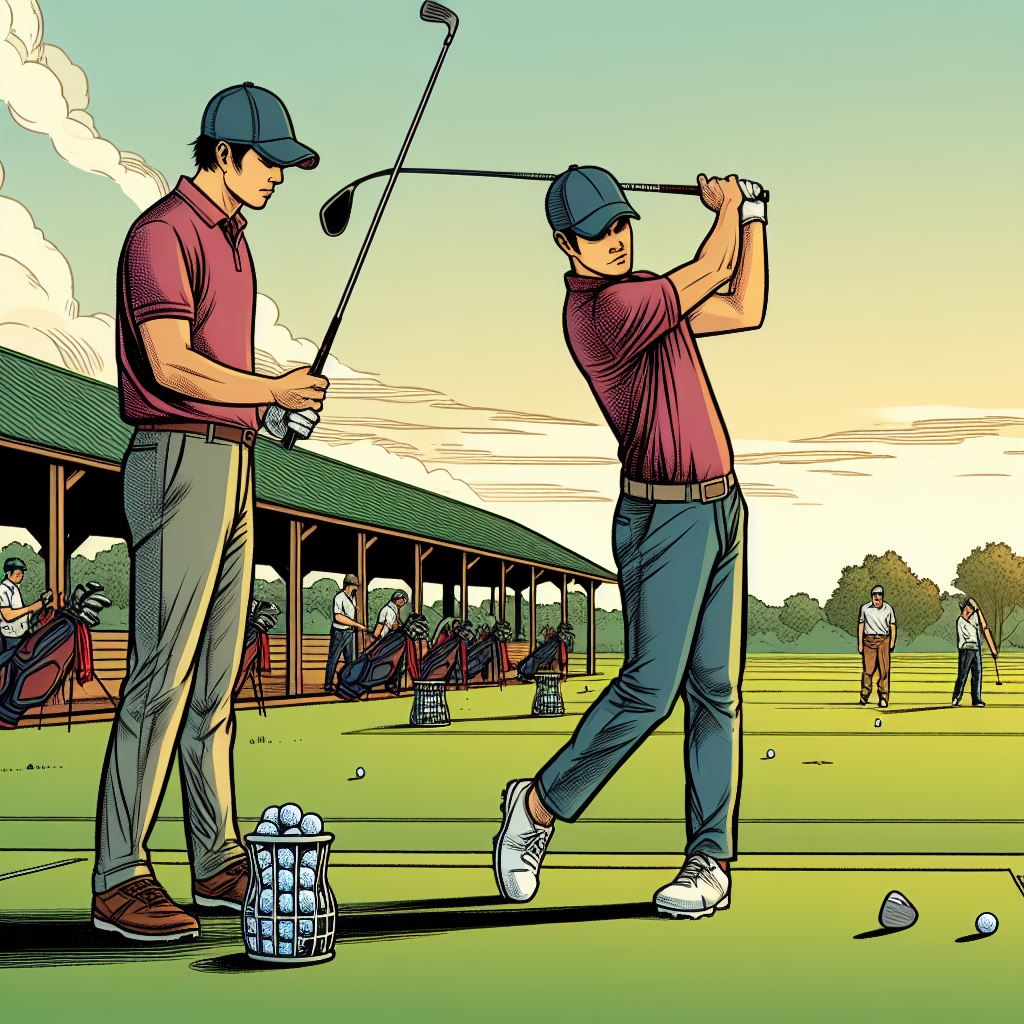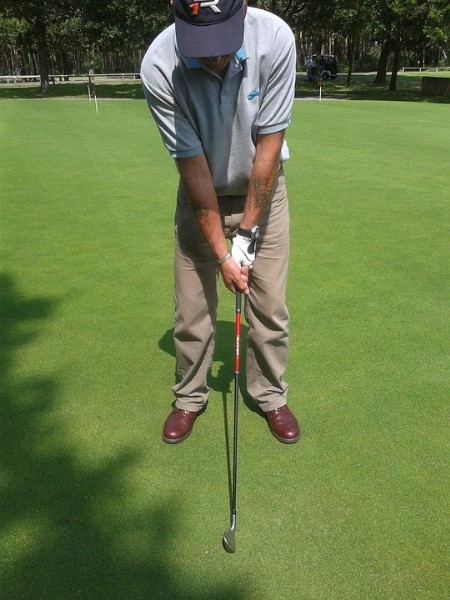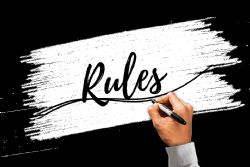DISCLOSURE: THIS POST MAY CONTAIN AFFILIATE LINKS, MEANING I GET A COMMISSION IF YOU DECIDE TO MAKE A PURCHASE THROUGH MY LINKS, AT NO COST TO YOU. PLEASE READ MY AFFILIATE DISCLOSURE FOR MORE INFO.
Golf is a sport that has been enjoyed by people for hundreds of years. It is played by people of all ages and abilities and is a great way to spend time outdoors while getting some exercise. For those who are just starting out, golf can seem like a daunting sport to learn. However, with the right guidance and practice, anyone can become a proficient golfer.

Getting Started
If you're new to golf, the first step is to understand the basics. Golf is a game played on a course that consists of 18 holes. The goal of the game is to hit a ball into each of these 18 holes in as few strokes as possible. Each hole has a starting point called a tee box and a destination point called a green, where the hole is located.
The clubs used to hit the ball are called golf clubs. There are different types of clubs, each designed for a specific purpose. The most commonly used clubs are the driver, which is used to hit the ball long distances, and the putter, which is used to roll the ball into the hole on the green. Other clubs include woods, irons, wedges, and hybrids.
Learning the Fundamentals
To be a successful golfer, it's important to learn the fundamentals of the game. Learn how to grip the club properly, how to stand, and how to swing. The grip is the way you hold the club and can have a big impact on how the ball is hit. The stance is how you position your body in relation to the ball and the target. The swing is the motion used to hit the ball.

It's important to note that golf is a sport that requires patience and practice. It can take time to develop the skills necessary to play the game well. But with dedication and practice, anyone can become a good golfer.
Choosing the Right Equipment
Choosing the right equipment is essential for any golfer, but especially for beginners. A good set of clubs can help make the learning process easier and more enjoyable. Choose clubs that are the right size and weight for your body type and skill level.

There are different types of golf balls, each designed for a specific purpose. Some balls are designed for maximum distance, while others are designed for better control and spin.
When starting out, the type of ball you use may not matter as much but it is good to read up about ball performance to understand why some balls give you different results.
Low-compression balls are ideal for new or high-handicap golfers. The high-compression balls are best for advanced players. However, the importance of the golf ball is less for the new or high handicap golfer than for the medium or low handicapper. Try using different brands and see what matches your game.
Click on this image to see an example of the Truscope Golf White Golf Balls that are designed with a patented soft-feel core for an improved feel off the green and a durable thin ionomer outer layer for extra longevity.
Choosing the Right Golf Club
One of the most important factors in playing golf is choosing the right club. There are many different types of golf clubs, each designed for specific shots and situations.
The main types of clubs are woods, irons, hybrids, wedges, and putters. Woods are generally used for long shots off the tee or fairway, while irons are used for shorter shots and getting out of trouble spots. Hybrids are a combination of woods and irons and are useful for a variety of shots. Wedges are used for getting out of bunkers and hitting shots with a high loft, and putters are used for putting on the green.
When selecting golf clubs, beginners should consider their skill level and physical abilities. Golf clubs come in different sizes, lengths, and weights, so it's essential to find clubs that fit your body type and swing style.
Finding a Course and Tee Times
Once you have the necessary equipment and have learned the basics of the game, it's time to find a course to play on. Most courses require players to have a tee time, which is a scheduled time to start playing. Tee times can be reserved in advance online, over the phone, or in person.
When choosing a course, it's important to consider factors such as location, course difficulty, and cost. It's also important to choose a course that is suitable for your skill level. Some courses are more challenging than others, and it's important to choose a course that matches your skill level to avoid frustration and disappointment.

Taking Lessons and Practicing

One of the best ways to improve your golf game is to take lessons from a professional golf instructor. Golf instructors can provide personalized instruction and feedback to help you improve your swing, stance, and overall game. They can also provide guidance on choosing the right equipment and can help you develop a practice routine to improve your skills.
Lessons can be taken in a group or individual setting and can range in length from 30 minutes to several hours. It's important to choose an instructor who is experienced and knowledgeable, and who has a teaching style that matches your learning style.
It is very important to practice regularly. Many golf courses offer lessons for beginners, which can help you learn proper techniques and improve your swing.
Practicing on your own is also important, and there are many drills and exercises that can help you improve your skills. For example, practicing your putting stroke or hitting balls from a bunker can help you develop specific skills and techniques.
Joining a Golf League or Group
Joining a golf league or group can be a great way to meet other golfers and improve your skills. Golf leagues are organized groups of golfers who play regularly on a particular course. They can be competitive or social and can provide a supportive environment for beginners to improve their game.
Joining a group or league can also provide opportunities to play on different courses, and can help to develop a sense of community among golfers.
Search online for local golf leagues. For new lady golfers, Women on Course is a great way to meet other new golfers and learn the game in a fun way.
Practice Makes Perfect

As with any sport, practice is key to improving your skills in golf. Practicing regularly can help to develop muscle memory and improve your swing, stance, and overall game.
There are many ways to practice golf, including hitting balls at the driving range, practicing putting on a putting green, and playing practice rounds on a course. It's important to practice all aspects of the game, including driving, chipping, and putting.
As a good friend of mine says, “Drive for show and putt for dough”. Meaning that you can learn to hit your drive great but if you do not learn to properly chip or putt, you cannot possibly score well.
Developing a practice routine can help to make the most of your practice time. It's important to set realistic goals and to practice consistently in order to see improvement.
Etiquette and Rules
Golf has a set of etiquette and rules that all players are expected to follow. These rules are designed to ensure fairness and safety on the course and to promote good sportsmanship.
Some of the basic rules of golf include keeping up with the pace of play, repairing divots and ball marks on the green, and following proper golf cart etiquette. It's also important to be aware of golf course dress codes and to respect other players on the course.
Some other basic rules include:
- Don't drive or walk ahead of someone's shot as they can end up hitting you.
- Never talk or move during someone's swing.
- Always let faster groups play through.
- Don't hit your ball out of turn unless your group is playing ready golf or while other players are still on the green.
- Mark your scorecard at the next tee box.
- Keep your pace by being ready when it is your turn.
By following these rules and showing respect for other players and the course, beginners can help maintain a positive and enjoyable atmosphere on the course.
Golf Course Terrain

Another important factor to consider when playing golf is the terrain of the course. Golf courses come in many different shapes and sizes, with varying degrees of difficulty.
A course can be flat, hilly, or have water hazards, sand traps, and other obstacles. It's important to choose a course that matches your skill level and to be aware of the hazards and challenges that the course presents.
Golf courses are also rated by difficulty, with par being the average number of strokes it should take to complete each hole. A par-3 course has shorter holes and is generally easier for beginners, while a par-5 course has longer holes and is more challenging.
Common Golf Terms
As with any sport, golf has its own set of terms and phrases that are used by players and enthusiasts. Some common golf terms include:
- Birdie: A score of one stroke under par on a hole.
- Bogey: A score of one stroke over par on a hole.
- Fore: A warning call used to alert other players of an errant shot.
- Green: The area of closely mown grass surrounding the hole.
- Mulligan: A do-over shot that is not counted on the scorecard.
- Rough: The tall grass and thick vegetation surrounding the fairway and green.
- Tee: The small peg used to elevate the ball for the first shot on each hole.
Knowing these terms can help beginners to better understand the game and communicate with other players on the course.
See our post about common golf phrases.
Golf Gear and Accessories

In addition to golf clubs, many other pieces of gear and accessories can enhance your game and make your time on the course more comfortable.
Golf balls are a key component of the game and come in many different types and designs. Beginners should choose balls that are designed for distance and forgiveness.

Other important accessories include golf bags, which can hold clubs and other gear, golf gloves, which provide better grip and comfort while swinging, and golf shoes, which provide stability and traction on the course.
Proper Stance and Swing

Having a proper stance and swing is crucial to playing golf effectively. A good stance can help you maintain balance and stability while swinging, and a proper swing can help you generate more power and accuracy.
When addressing the ball, stand with your feet shoulder-width apart and your knees slightly bent. The ball should be positioned in the center of your stance, with your weight evenly distributed on both feet.
There are various ball placements based on the club you are using and watching a few videos could help you practice those. Ladies, I highly recommend Lisa Longball’s YouTube videos.
As you swing, keep your arms and wrists relaxed, and focus on swinging through the ball rather than just hitting it. A smooth, controlled swing with proper follow-through can help you achieve better results on the course.
Benefits of Golf
In addition to being a fun and challenging sport, golf offers many benefits for both physical and mental health. Golf can provide a low-impact form of exercise, which can help improve cardiovascular health and endurance.
Golf also requires mental focus and concentration, which can help improve cognitive function and reduce stress. The social aspect of golf can also provide opportunities for networking and socializing with other players.
Conclusion
Golf can be a fun and rewarding sport for beginners, but it also requires patience, dedication, and practice. By choosing the right equipment, finding a suitable course, and learning the basics of the game, beginners can start enjoying the many benefits of golf.
Improving your stance and swing, following proper etiquette and rules, taking lessons and practicing regularly, and understanding the many benefits of golf can help beginners become proficient players and enjoy this timeless sport for years to come.





